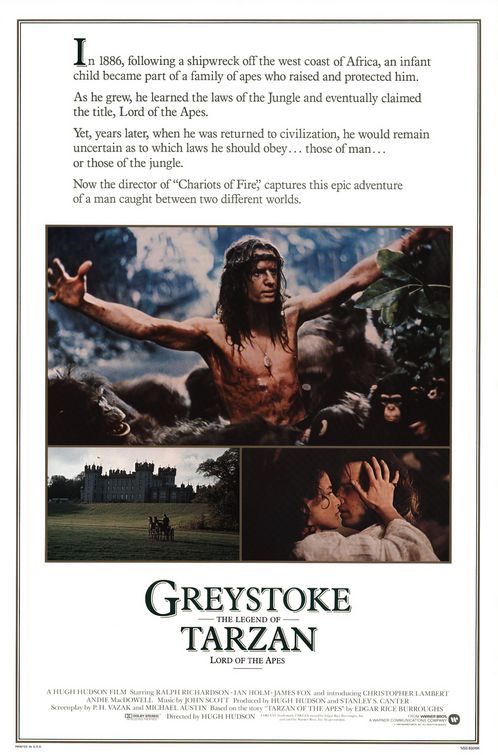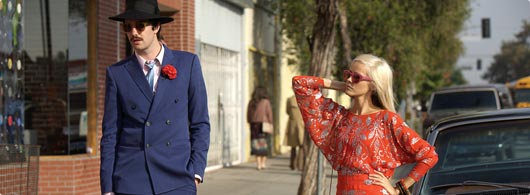Swing, Tarzan, Swing! Ch.7: Oscar Loves "Greystoke"
 Monday, August 22, 2016 at 8:57PM
Monday, August 22, 2016 at 8:57PM  During this summer of the Tarzan reboot we've revisited past films in the long history of Tarzan on film. Four more episodes to go!
During this summer of the Tarzan reboot we've revisited past films in the long history of Tarzan on film. Four more episodes to go!
Impossible as it may be to move Tarzan away from his ultra-specific origins as a colonial era fantasy, filmmakers have tried over and over again to do exactly that. As we've seen in past installments of our "Swing, Tarzan, Swing!" series, he keeps changing with the times despite his historical baggage. We've seen starkly different depictions of his relationship to Jane from equal partners to Head of the Household suburban conformity. The Lord of the Apes even tried to get bachelor hip with the 1960s at the beginning of the James Bond frenzy. Nearly every Tarzan on television has attempted to place him closer to the actual timeline in which it aired. The new Legend of Tarzan (reviewed) works hard to downplay the racism in the myth, but it's never going completely away given that the story is, at heart, about a white man who becomes king of the jungle and often the savior of Africans in his ongoing adventures.
Tarzan works best when he's allowed to stay in the era to which he belongs. So it was a stroke of inspiration for director Hugh Hudson (fresh off a Best Picture win with Chariots of Fire) to give him the historical epic treatment in Greystoke: The Legend of Tarzan, Lord of the Apes (1984) even though the Ape Man doesn't belong to world history any more than, say, Batman, Superman and Spider-Man who were all also tragically orphaned (it's a superhero thing, okay?).

The marketing was so committed to this "serious" prestige historical treatment that the poster even has a four paragraph synopsis closer to a novel than a movie tagline...




